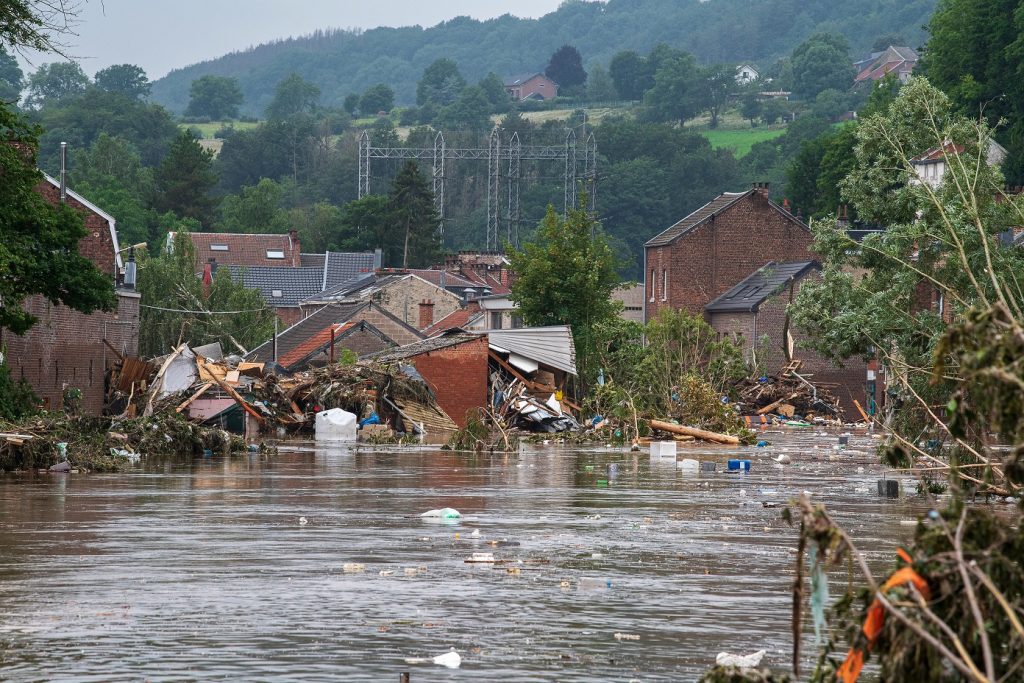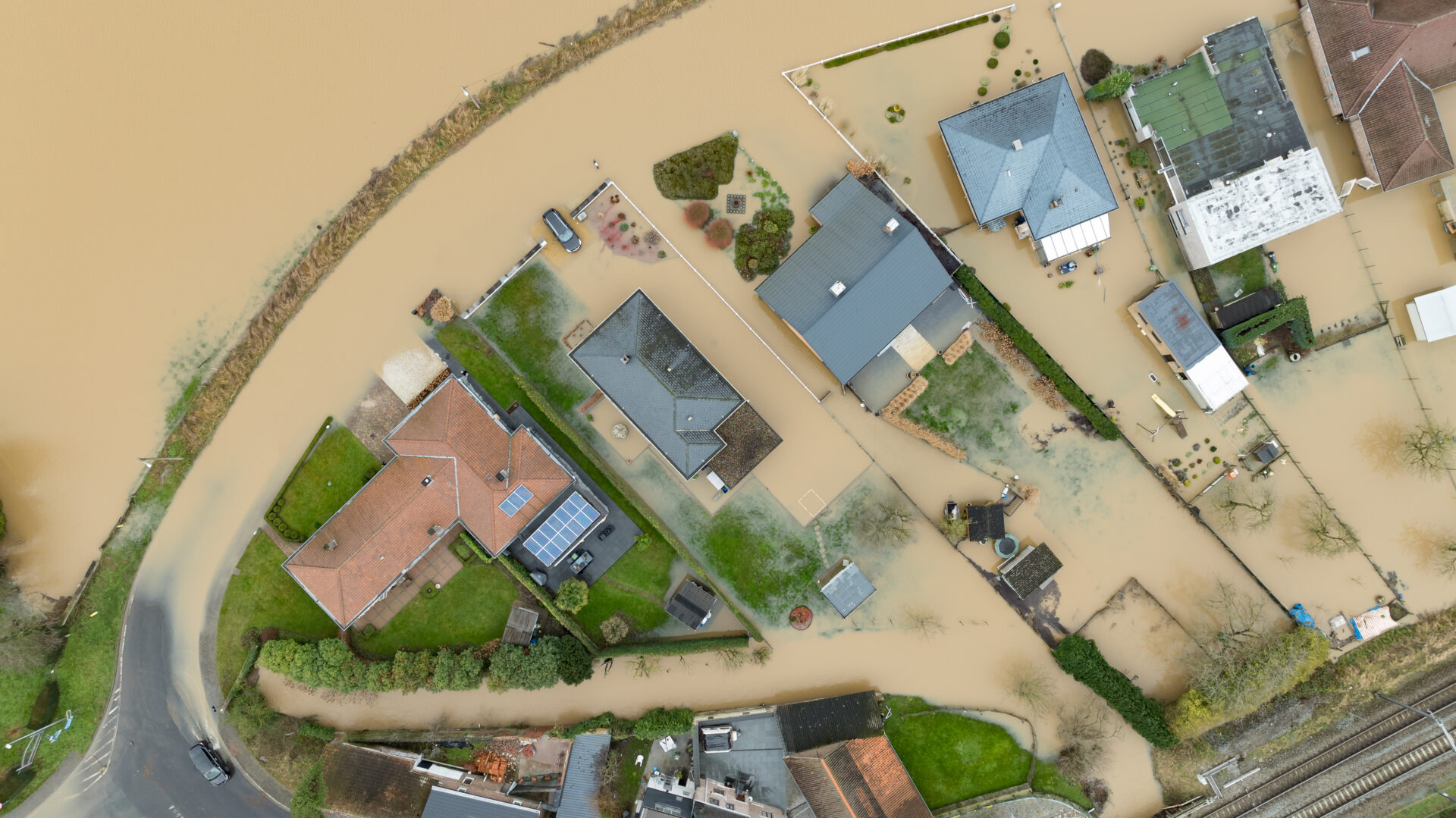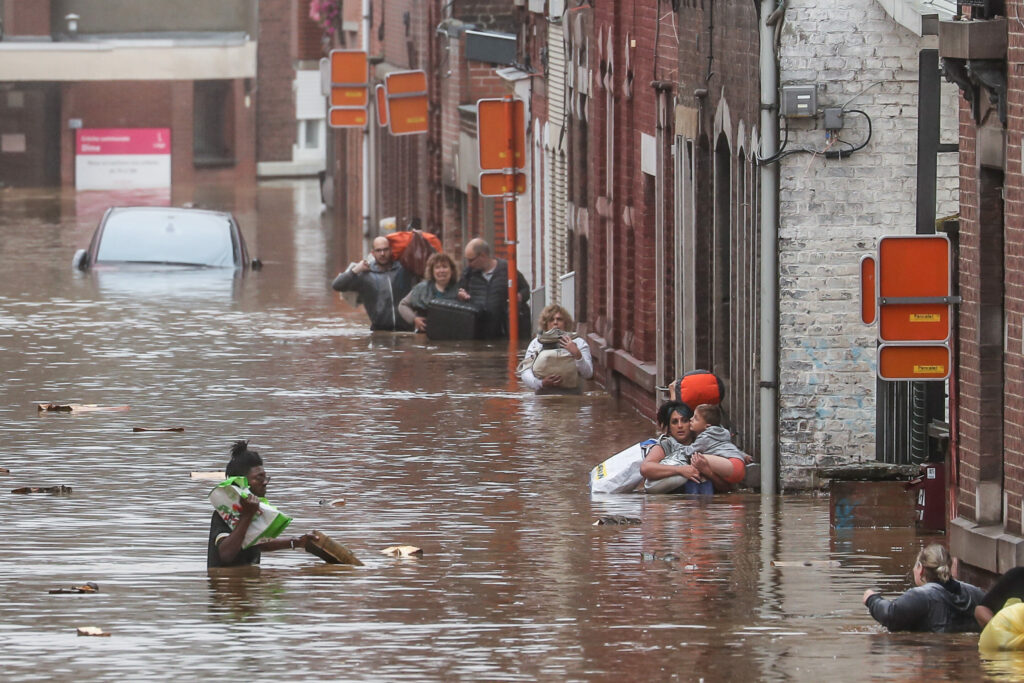The fatal floods which hit Belgium in July 2021 cost billions in damages. As extreme weather events become more frequent and intense, concerns have been raised about how adequately citizens will be protected in the event of another large-scale climate disaster.
Three years ago, the skies opened over Belgium, flooding many areas and causing the deadliest natural disaster in the country's history. Aside from claiming the lives of 41 people, compensating the damages caused by the downpour cost an estimated €2.5 billion. So what will happen when Belgium inevitably faces another major climate disaster?
"If things continue as is, phenomena such as extreme heat and droughts that perpetuate forest fires to heavy rainfall leading to floods like the one in Belgium will keep becoming more common, probable and intense," VUB climate scientist Wim Thiery told The Brussels Times.
Inadequate amounts
As global warming continues to drive climate change, there will be more human suffering, but also more damage to infrastructure. This has already been witnessed in neighbouring countries: following the torrential rain that hit southern Germany this spring, insured losses are estimated to range from €2.4 billion to €3.6 billion, while flooding and managing the aftermath costs the United Kingdom around €2.6 billion each year.
In Belgium, this risk is privately insured: the fire protection of home insurance policies includes compulsory cover against almost all natural disasters. However, the legal ceiling for insurers' intervention is capped at €1.6 billion, far below the cost of the total amount of claims from the 2021 floods.

Credit: Belga
"This disaster highlighted that the current regulation is not adequate and that these amounts are not sufficient in major disasters," Peter Wiels, spokesperson for Assuralia, the insurance companies' association, told The Brussels Times.
In 2021, a full compensation scheme was agreed upon with the Walloon Region: insurers doubled their maximum legal compensation and guaranteed a zero-interest loan to the region which repaid the excess part of the damages. "If special arrangements had not been made, people would never have been fully compensated."
A future without insurance?
Reports from the United Kingdom have revealed that flood victims are already being told damages will not be fully covered, while many more are facing soaring insurance premiums, especially in flood-prone areas. "Private insurance companies are realising that their risk assessments based on the past are no longer valid," Thiery said.
"This is because the past is no longer a good measure of the present, and the present is not a good measure of the future either. So the past is definitely not a good measure for the future," Thiery said.
In the United States, regularly hit by deadly tornadoes and devastating wildfires, insurance companies are stopping insuring some homes altogether. "Then the resale value of houses drops or they can't be resold at all, followed by banks not offering them loans anymore."
However, in the short term, Belgian residents should not fear such scenarios, as they are better protected. "There is a legal regulation which insurers must follow," Wiels said.
"Even in risk zones, homes built before a certain date are insured," he said. Customers who, for example, live next to a river or another body of water may have to pay a higher premium for the natural disaster component (this amount is capped), while insurance companies can refuse to insure new builds in risk-prone areas.
Solidarity vs root cause
Three years on from the fatal floods, no adapted legislation has been adopted in preparation for another large-scale climate event. "If the rules are not adjusted and we face another disaster, we will have to tell people who are already in a miserable situation that we cannot cover the full damages. This will cause chaos," Wiels said.
The insurance sector has repeatedly called for a "solidarity system" that shares the burden of costs between insurers, the regions, and federal authorities. It recently reiterated this message for the next governments. "This is necessary to ensure full compensation to those affected."

Floods from the Dender after heavy rainfall in Geraardsbergen on Wednesday 3 January 2024. Credit: Belga / Kurt Desplenter
Thiery has concerns about asking the governments to pay for the damage of climate change. "I understand insurance companies want to keep making a profit," he stated. "But if the government has to fork out for damages, this will take a massive chunk out of the Belgian and regional budgets. This is also money that cannot be invested in social security or education, for example."
With the expected scale of the problem, the situation risks becoming financially unmanageable, both privately and publicly. "We need to avoid such a crisis by addressing the problem at its foundation: climate change." A recent study showed that the cost of limiting global warming by 2050 would be less than a sixth of the cost of the estimated damage.
Insurance companies also have a role to play in this. While some are stepping away from covering projects that jeopardise the Paris Agreement, many continue to insure new fossil fuel projects. "They see the damage costs increasing, but they continue to support the problem."
Assuralia confirmed that the current Sustainable Finance regulatory framework is increasingly steering all financial institutions, including insurers, towards sustainable investments and that insurers are "less and less" involved in fossil fuel projects.

